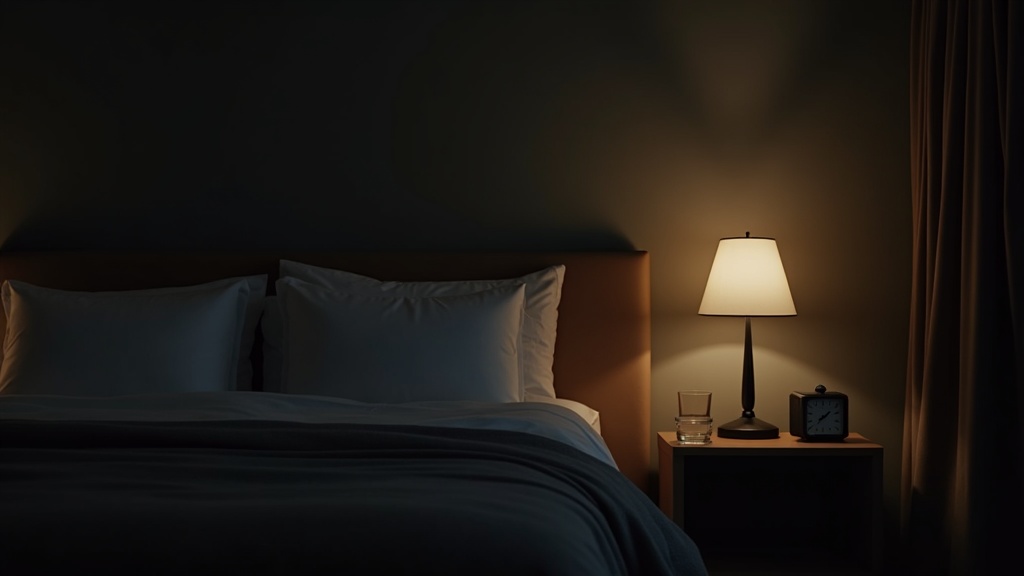Poor sleep is often overlooked when people talk about weight loss, but it can make the entire process way harder than it needs to be. Even if you’re eating well and moving your body, not getting enough sleep could be holding you back from seeing results. I’ve seen plenty of people get frustrated when the scale won’t budge, and it turns out that fixing sleep habits is sometimes the gamechanger.

Why Sleep Matters for Weight Loss
Understanding the connection between sleep and weight loss isn’t just about feeling rested after eight hours. While good sleep helps you feel more energized and motivated, it actually impacts your metabolism, hunger hormones, and your body’s ability to burn fat. Skimping on sleep can seriously mess with how your body handles food and stress.
Poor sleep throws your hunger hormones out of balance, mainly ghrelin and leptin. Ghrelin tells you when you’re hungry, and leptin tells you when you’re full. Not sleeping enough hikes up ghrelin and lowers leptin, making you feel hungrier and less satisfied after meals. On top of that, sleepless nights can raise stress hormones like cortisol, which is linked to stubborn belly fat and cravings for heavily processed snacks.
Research consistently shows a strong connection between chronic sleep deprivation and a higher risk of weight gain. A study published in the journal Sleep found that people who slept less than 6 hours most nights were much more likely to pack on pounds over a few years, even if they tried to eat healthy during the day.
The Science: How Lack of Sleep Blocks Weight Loss
It’s not just about feeling groggy; there are real, physical changes happening inside your body when you don’t get enough shut-eye. Here’s how poor sleep can get in the way of dropping pounds:
- Hormonal chaos: Poor sleep boosts ghrelin (the hunger hormone) and lowers leptin (the fullness hormone), so you naturally feel hungrier and snackier, especially at night.
- More cravings: Sleep deprivation lights up reward centers in your brain, so junk food and sugary snacks become much harder to resist.
- Slowed metabolism: Your body uses less energy while you rest, but lack of sleep also makes your cells less responsive to insulin, which impacts how your body stores fat.
- Less willpower: When you’re tired, you’re more likely to skip workouts and opt out of meals with protein or vegetables. Impulse control takes a pretty big hit.
- Cortisol issues: Chronic sleep loss raises cortisol, and high cortisol levels can actually signal your body to hold onto fat, especially around the waistline.
A review in the journal Current Opinion in Clinical Nutrition & Metabolic Care highlights how less sleep can add up to about 300 extra calories per day on average from snacks and comfort foods. That number can sneak up quickly and really stall your progress.
Steps to Improve Sleep and Support Weight Loss
The good news is that getting better sleep can help your weight loss efforts pay off faster, and it doesn’t mean a complete life overhaul. Here’s what I find really helps people reset their sleep, especially if their primary focus is losing weight:
- Stick to a sleep schedule: Going to bed and waking up at the same time every day teaches your body when it’s supposed to feel sleepy and alert.
- Create a winddown routine: A consistent routine with dim lights, a warm shower, or some light reading can signal to your brain that sleep is coming up soon.
- Limit screens before bed: Phones, tablets, and TVs all emit blue light that confuses your brain and keeps you awake. Try parking devices an hour before bedtime.
- Keep your space cool and dark: Most people sleep better in a cool room (around 65°F) and total darkness. Blackout curtains and a fan can be pretty useful, especially in summer.
- Watch caffeine and late night snacks: Coffee, energy drinks, and big meals late in the evening can make it tough to wind down. Aim for your last meal or snack at least 2–3 hours before bed.
- Get some sunshine and movement during the day: Natural light during the daytime helps set your body’s sleep-wake cycle, and regular movement (even just a walk) helps burn off stress hormones.
Tracking your sleep for a week or two—either in a journal or with a sleep app—can help you spot patterns that you didn’t notice before. Even small changes can make a difference after a few days.
Big Sleep Mistakes That Sabotage Weight Loss
Many people try quickfix weight loss plans but forget to check in on their sleep. Here are a few common mistakes I see crop up:
- Using alcohol to fall asleep: It might feel relaxing, but alcohol throws off your sleep cycles, which often makes you wake up in the middle of the night.
- Working or scrolling in bed: Beds are for sleeping, not emails, not social media, and not late night movies. If you’re struggling to fall asleep, get up and read in another room until you feel tired again.
- Ignoring sleep disorders: Issues like sleep apnea, insomnia, or restless legs syndrome are really common and can drain your energy. If you snore loudly, wake up gasping, or always wake up tired, check in with a healthcare provider.
- Lots of naps or sleeping in: Catching up on sleep with long naps or weekend sleepins might disrupt your internal clock. Short power naps are fine occasionally, but regular long naps can make it harder to fall asleep at night.
Hidden Causes of Poor Sleep
Sometimes the reason for bad sleep isn’t obvious. Stress, hormone changes, new medications, noisy neighbors, or even too much light in your bedroom can interrupt your rest. Figuring out the root cause can take a bit of experimenting. If nothing seems to help or you have trouble every night, an appointment with your doctor is definitely worth checking out.
Advanced Sleep Tips for Stubborn Weight Loss Plateaus
If you’ve already cleaned up your sleep basics and you’re still having trouble, some advanced strategies can help take things up a notch:
Track your sleep quality, not just quantity: Eight hours in bed doesn’t always mean eight quality hours. Paying attention to how often you wake up at night or how tired you feel in the morning is just as important as what time your alarm is set for.
Limit stimulants after noon: Not just coffee—watch out for preworkouts, energy drinks, certain teas, and even some pain relievers or cold medicines.
Experiment with magnesium or tart cherry juice: Some people find that magnesium supplements or a small glass of tart cherry juice gently supports a better night’s rest. While it isn’t a magic fix, it can be worth a try (after checking with your health provider).
Mind your gut health: Fascinating new research links gut health and sleep. Probioticrich foods like yogurt or kefir may be worth adding to your evening snack for a better night’s rest.
For anyone exploring natural remedies for easier weight loss, there are helpful ideas over at EliteWomenSlim.com that focus on more than just diet and exercise; sometimes gentle tools can nudge you in the right direction.
FAQs: Sleep and Weight Loss Resistance
Question: How many hours of sleep is ideal for weight loss?
Answer: Adults usually do best with 7–9 hours a night. The ideal amount can vary, so listen to how rested you feel and notice if you’re waking up naturally before your alarm.
Question: Can sleeping too much also affect weight?
Answer: Long-term oversleeping (more than 9–10 hours regularly) sometimes connects to other health issues and can slow down your energy levels. Consistency and quality matter much more than tacking on extra-long nights.
Question: Does napping during the day help with weight loss?
Answer: Short naps (15–30 minutes) can help you feel refreshed if you had a rough night, but long or late afternoon naps often make falling asleep at bedtime tougher.
Rethinking Weight Loss: Don’t Skip Sleep
Trying to get by on just a few hours of sleep while working at weight loss usually sets you back more than you expect. Fixing your routine takes a little practice, but it pays off with easier weight loss, better energy, and much more “I can do this” motivation. If your healthy meals and workouts aren’t giving much, take a closer look at how you’re sleeping. Sometimes, that’s the missing piece that unlocks progress.
I always recommend exploring supportive ideas and gentle natural remedies, and sites like EliteWomenSlim.com are a great resource if you’re looking for more ways to support your body and reach your health goals.
